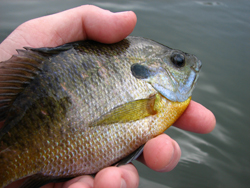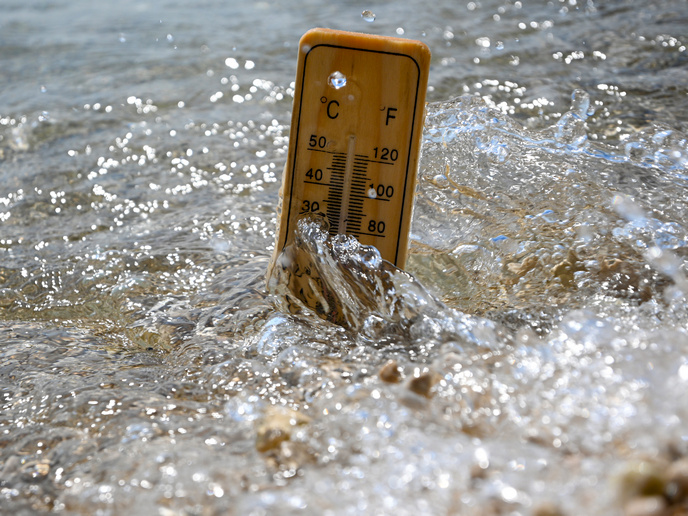Effect of climate change on alien fish species
Freshwater environments are extremely sensitive to changes in meteorological conditions and the organisms they contain may be vulnerable to predicted future climate change. Aquatic ecosystems and biodiversity can also be threatened by non-native species introduced into Europe either by accident or design. An increase in extreme weather events such as flash floods due to global warming raises the risk of non-native species reproducing and dispersing into the freshwater environment. A changing climate will put additional stress on native organisms, which are already under duress from alien species due to predation, competition for food and the introduction of new diseases. The European-funded Alienfish&climchange project determines the risks and impacts presented by non-native fish under conditions of climate change. A scientist funded by the Marie Curie Intra-European Fellowship has assessed the risk posed by the pumpkinseed (Lepomis gibbosus) and estimated spawning frequency, growth and dispersal rates as a result of flood events. Drift nets were used to sample populations in the wild and study their reproductive strategy. Pumpkinseed reproduction and the corresponding increase in the species' invasiveness were investigated under controlled conditions. For six months fish were held in artificial ponds; three ponds were heated by 2-3 degrees centigrade and three were at ambient temperature. Fish kept in the heated ponds spawned earlier and for longer, leading to a higher number of larger young fish and better survival rates over winter. The findings suggest that L. gibbosus will become more invasive under warmer climatic conditions. It is crucial to understand the environmental biology of alien species if an eradication programme is to be developed to help conserve native fish. Data from Alienfish&climchange will help environmental managers and government bodies make informed decisions regarding non-native species such as pumpkinseed fish.







